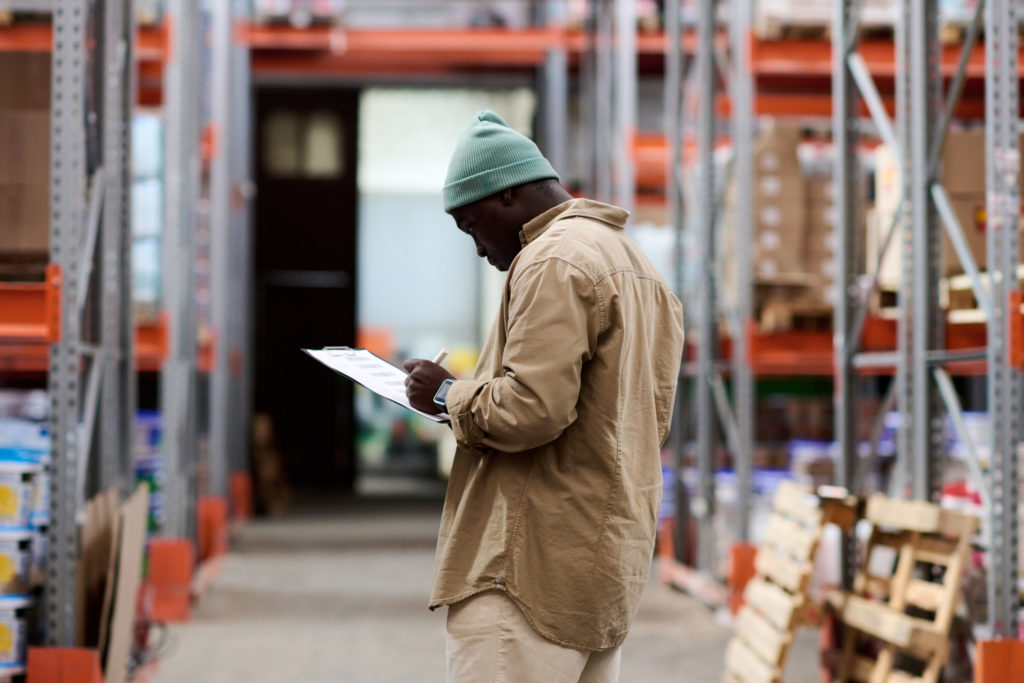Renting storage units is a great option for people who need extra space for various items. A secure storage unit can make your life much easier when moving, renovating, or storing small business inventory.
Remember to ask the right questions before signing an agreement with a storage facility rental. The checklist below will help you find a storage unit for your needs.
Why Are You Looking Into Renting Storage Space?
Shopping for a storage room rental is easier when you know what you want. Before getting in touch with local storage facilities, ask yourself these questions:
- Why do I need to rent a storage unit? Do I only plan to store personal items, or will I also need room for business stock or equipment?
- What is my budget? How much am I willing to pay?
- What is the value of the items I’m planning to store? Is security a high priority?
- Are my items sensitive to humidity and temperature? Do I need a climate-controlled unit?
- Do I plan to visit my storage unit often, and at which hours? Will I need 24/7 access?
What To Ask Before Signing a Rental Agreement
When looking into renting storage units in your area, you’ll likely find several facilities offering storage space. It’s always best if you can visit the premises to get a first-hand impression of the security, upkeep, lighting, and staffing on site. However, whether you’re taking a physical tour of the facility or reaching out online, you should ask the following questions.
1. What Unit Sizes Are Available?
Based on your items’ volume, you can calculate the unit size you’d need to store your belongings. However, you should also look into possible future needs. For example, what happens if you need more storage space for extra items? Can you scale up within the same facility, or would you need to switch to a different service?
2. What Security Arrangements Do You Use?
A major reason you’re paying for storage space is to keep your items safe. Ensure the facility you choose uses robust security measures. Do they offer gated access? Do the surveillance cameras cover the entire area, and how often does the facility monitor security footage? Do clients get a security code? What do the locks on individual units look like?
Also, ask whether personnel are on site 24/7 or only part of the time. Ideally, you’d choose a facility with staff members who patrol the premises regularly rather than only a front-desk guard.
3. Are Your Storage Units Climate Controlled?
Electronics, furniture, textiles, artwork, and many other types of items are sensitive to climate and could become damaged when exposed to swings in temperature or humidity. Choose a climate-controlled unit if you plan to store delicate or valuable items.
4. What Are Your Monthly Rates?
Even if the first service you check offers seemingly reasonable fees, shop around a bit more. Another facility may provide the same service for a better price. If this applies to you, ask about special deals and discounts for students or military personnel. Check out the service’s site and social media channels for online coupons.
Before signing a contract, read the fine print. Some storage rental agreements include deposits, admin fees, and hidden charges that could inflate your monthly rates.
5. When Can I Access My Unit?
If you prioritize 24/7 access to your items, a facility that’s only open 9 to 5 might not be your best choice. On the other hand, if you’re fine with only accessing your unit during regular business hours on weekdays, service hours are a less important consideration.
Also, remember there’s often a difference between office and access hours. Even if you can enter your unit at 4 a.m. on Sunday, there might be no on-site personnel to address any concerns or questions.
6. What Is Your Policy on Storage Insurance?
If the facility you’re considering requires clients to insure their items, you must factor insurance costs into your overall storage fees. Some facilities offer insurance as an optional feature for people renting storage units.
An insurance policy can offer peace of mind if storing valuable items. You may also check whether your homeowners’ insurance covers self-storage.
7. How Do You Handle Upkeep and Pests?
Beware of any facility where you notice poor lighting, lack of cleanliness, or other signs of inadequate upkeep. Ask about the pest control policies on the premises. Rodents and bugs can be a big problem if they get into a storage unit and damage your items.
8. What Are Your Selling Points?
How does this service differ from other storage facilities in the area? A storage rental may offer selling points like extra flexible contracts, special deals for new customers, full-service storage options, or premium security protocols.
9. What Is Your Process for Client ID Verification and Signing a Contract?
Once you’ve found a storage service that works for you, ask how you’d proceed to signing a rental agreement and how the payment plan would work. You’d usually need to provide a government-issued ID and pay a deposit. If for some reason a storage facility does not ask for ID verification, take that as a red flag to look elsewhere.
Don’t forget to ask about commitment terms. Depending on your plans, a month-to-month agreement you can cancel anytime may be more convenient than an annual contract.
Do You Need a Larger-Scale Solution?
If you’re renting a storage unit to keep items for sale, it’s a setup that could work while your business takes its first steps. However, as you scale up, you might want to look into professional warehousing services, which could give you more space and seamless inventory solutions. Renting warehouse space makes it easier to catalogue items, track deliveries, and manage inventory.



 Who We Are
Who We Are
 Our Advantages
Our Advantages
 Case Study
Case Study





